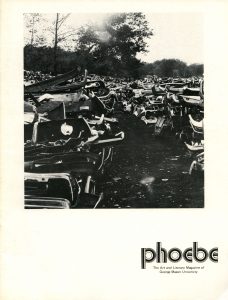1
The park was boats, ducks, people,
but more than these always
the discarded condom:
stretched out, showing its slime,
or heaped in a coil.
Seen from a distance
it slowly took shape
and became itself,
while a sharp intake of breath
twisted my body
towards the world of its use,
eons away, beyond leaden barriers,
beyond a still hoped
quick fading
of my prison.
To do that,
to enter that world,
to do what I knew
thousands were doing,
to touch
what there was to be
no touching of,
to convert chains
into a whisp of breath,
to accept somewhere or
anywhere in the world
some girl saying yes
to the filthy question.
2
A piece of warm liver
in a glass.
Screw it.
Dig a hole
in the mattress,
or for quick substitute
thrust your hot self’s
urgent part
between two cushions
of a sofa.
Will that do?
Hide the cards
with the teasing pictures
far in the back
of your drawer
for the cozy rendezvous.
This at least
they can’t
take away from you.
Year after year
the handkerchiefs
that received and held
their salty load
went to the laundry hamper,
doubtless to be smelled
by the silent,
regretful mother,
whose only advice
had been a turned away
don’t do those things
and a don’t worry about girls.
3
At night the city
is all around you
beckoning to what
you know only
the far years will bring.
But you have forgotten tenderness
or never known it.
You do not understand
the lovers woven together
on the park benches,
nor understand
your embarrassment.
When you see
in your flickering dreams
bodies together on a bed,
you know only
a thrashing about,
a hotness of breath,
an all-to-be-desired thing
whose forbiddenness
blurs in your mind
like a swamp.
4
Dirty, dirty, dirty,
but warm, warm, warm.
The words and their
music are endlessly
counterpointed
in your city walks,
your evening dreams.
It is never exactly
shame that turns
you away from
mother and father.
Without words for it,
you know that
they have denied all
your hot urgencies
and turned their heads
into a sandback
for the moments
when they must know
you are becoming a man
and dimly remember
that even a boy
is desperate in
what they help to make
a hot shame.
5
I could not hear
the phone ringing
at the other end
of the line
as I called
my dearest friend
to say my father’s
illness would
keep me home.
The wires crossed,
and suddenly I spoke
to a gentle-voiced girl,
who believed the truth
about the call.
I explained my situation.
We talked on and she asked
how old I was.
It was sixteen or seventeen,
to her real regret.
I heard a music I had
never known before
of naturalness
and claims that
were neither mad
nor doomed. Around
her voice cluster
memories of doors
that were
locked for me
by hands that held
mine and made them
turn the key.
But memory of her
runs through me
with a warmth
unlike the heat
of the dreamed world
of night and blossoming condoms.
6
A few years earlier
my brother and I
saw through our
bedroom window,
across and down
an areaway,
a man sliding
onto a woman
for coition.
They were heavyish
and not too young.
The act was brief.
They lay apart
to talk. It was
all so simple,
so much less
than the worth
of such things
in my world.
7
The boys
who were brave for pussy
were another breed.
I talked to them,
on occasion,
as if we were in
the same world.
They walked off
into the park
or to the subway.
Once one told me
of a line-up where
someone passed out condoms.
I was relieved
not to have been there.
But there was
no danger from that.
The electrical fence
of my fears
did its work well.
8
When my first
love put her hand
on my bare bottom,
intending to caress it
lovingly, I
made her take
it away. She asked
why and I replied
that I didn’t know.
How late, how
very late, did
wisdom come.
Mordecai Marcus (1925-2014) was born in New Jersey. He began writing critical essays in 1959 and joined the faculty of the University of Nebraska’s English department in 1965. Marcus published over 500 poems and six chapbooks. His most recent works were Poems of Robert Frost: An Explication (1991) and Pursuing the Lost (1993).
